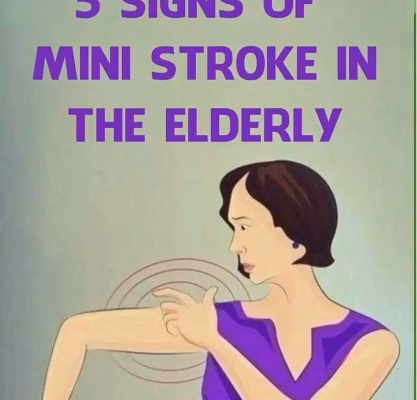🧠 Mini Strokes in Seniors: Spotting the Signs Before It’s Too Late
A mini stroke, or transient ischemic attack (TIA), is a temporary interruption of blood flow to the brain. Though symptoms usually go away within 24 hours and don’t leave lasting damage, a TIA is a serious red flag—it often signals a major stroke could be coming.
In older adults, the signs can be easy to miss or mistake for normal aging. That’s why recognizing both the typical and surprising symptoms is so important.
✅ Common Warning Signs of a Mini Stroke in Older Adults
These symptoms mimic those of a full stroke but disappear within minutes or hours:
- Sudden confusion or difficulty speaking
▸ Slurred speech or trouble finding the right words. - Weakness or numbness
▸ Usually affects the face, arm, or leg—often just on one side. - Vision problems
▸ Blurred or double vision, or sudden loss of vision in one eye. - Dizziness or loss of balance
▸ Unsteady walking, clumsiness, or coordination issues. - Severe, sudden headache
▸ Pain with no obvious cause.
⚠️ Unusual or Overlooked Symptoms in the Elderly
Older adults might experience less obvious signs, which can be mistaken for dementia, fatigue, or emotional changes:
- Brief confusion or disorientation
▸ May seem like forgetfulness or mild cognitive decline. - Unexplained fatigue or exhaustion
▸ Feeling “off” or unusually tired without physical exertion. - Mood or personality shifts
▸ Sudden irritability, anxiety, or depression. - Loss of bladder or bowel control
▸ Not related to other known conditions. - Short-term memory loss or amnesia
▸ Forgetting where they are or what just happened. - Fainting or feeling faint
▸ Caused by temporary lack of blood flow to the brain.
🚨 Why You Should Take Mini Strokes Seriously
- Around 1 in 3 people who have a TIA will eventually suffer a full-blown stroke.
- The first 48 hours after a TIA are the most critical.
⏱️ What to Do: Act FAST
If you suspect a mini stroke, don’t wait—call for help immediately. Use the FAST method:
- Face drooping
- Arm weakness
- Speech difficulty
- Time to call emergency services
Even if symptoms go away, get checked right away. It could save a life.
🩺 Preventing Future Strokes
Protect brain health by managing key risk factors:
- Keep blood pressure, cholesterol, and blood sugar under control
- Quit smoking and limit alcohol use
- Stay active and maintain a healthy weight
- Take prescribed medications as directed
- Schedule regular checkups—especially if you or a loved one has had a stroke or TIA before



